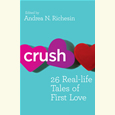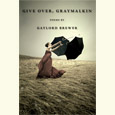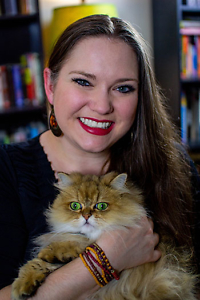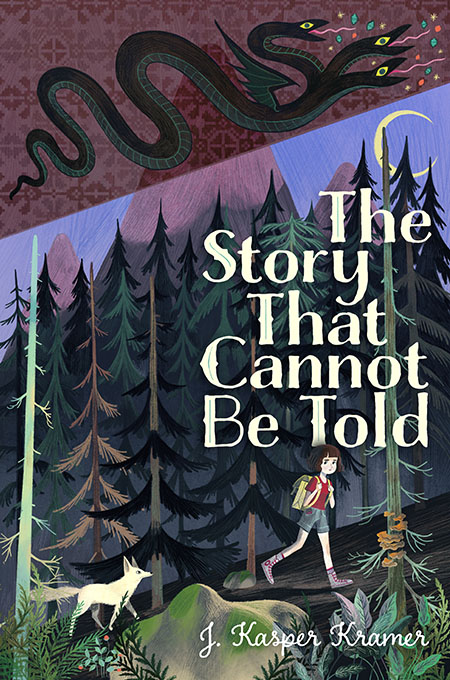Till Death Do Us Part
Gillian Flynn, number-one bestselling author of Gone Girl, talks about the novel’s criminally toxic marriage and its bright future on the big screen
Gone Girl, the latest bestselling mystery by Gillian Flynn, opens on the fifth anniversary of Nick and Amy Dunne. This is also the day that Amy goes missing, leaving behind traces of a violent struggle in the living room of their Missouri home, and Nick quickly becomes the prime suspect. The book’s chapters alternate between the voices of Nick and Amy, the latter in the form of diary entries that illuminate the couple’s relationship, which is more sinister even than George and Martha’s dysfunctional union in Edward Albee’s Who’s Afraid of Virginia Woolf? . That play’s title was a pun on the children’s song “Who’s Afraid of the Big Bad Wolf?,” but a different question is raised by Flynn’s dual portrayal of Nick and Amy: which one is the wolf? As the plot thickens, Flynn’s sleight of hand leads readers in one direction and then another as readers try to discern who, exactly, is at fault.
A former television critic at Entertainment Weekly, Flynn is the author of two previous literary mysteries, Sharp Objects and Dark Places. Published in June, Gone Girl became the number-one bestselling hardcover hit of the summer. Rave reviews have described the book as a “dazzling breakthrough” (The New York Times), a “relentless page-turner” The AV Club, an “awesome whodunit” (Kirkus Reviews), and a “thoroughbred thriller” (Time). Reese Witherspoon’s production company has purchased the novel’s film rights, with Flynn slated to write the screenplay.
In advance of her appearance at the Southern Festival of Books in Nashville, the Chicago-based author answered questions from Chapter 16 via email.
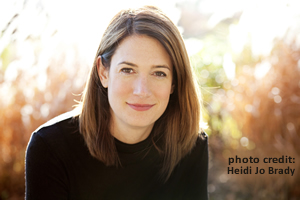 Chapter 16: For a decade you worked at Entertainment Weekly, first as a reporter and then as the television critic—a gig many writers would covet in this age of dwindling jobs for journalists. Was being downsized a blow, or were you already hoping for the chance to pursue fiction full time? Were there any fears or misgivings you had to overcome about making that transition?
Chapter 16: For a decade you worked at Entertainment Weekly, first as a reporter and then as the television critic—a gig many writers would covet in this age of dwindling jobs for journalists. Was being downsized a blow, or were you already hoping for the chance to pursue fiction full time? Were there any fears or misgivings you had to overcome about making that transition?
Flynn: I loved my job at EW—you are very correct that it was a great gig. I got paid to watch TV and movies and read books and then write about them! I got to talk Tolkien (one of my favorite writers) with Peter Jackson (one of my favorite directors)! What more could a pop-culture nerd wish for? So being laid off was a blow. I liked my job, and I’m also a pragmatic Midwesterner—the idea of writing novels full time seemed a bit of a lofty goal. That said, after the initial strangeness of having so much loose time on my hands to just write a book (I wrote the first two on nights and weekends), I adjusted quite nicely to being a full-time novelist. And believe me, I know how lucky I am.
Chapter 16: Each of your three books has mined similar themes of murder, deception, and long-buried secrets. What draws you to crime fiction?
Flynn: I’m actually less drawn to crime fiction per se than I am to the characters that inhabit crime fiction, if that makes sense. I have a deep affinity for losers, misfits, fools, and people who can’t get out of their own way. These are my heroes, and they work very nicely in crime novels. A crime novel is also the most interesting place for me to explore the kinds of themes that intrigue me: envy, needfulness, infamy, rage, poverty, broken hearts.
Chapter 16: Did you learn anything from writing your first two novels that’s specifically reflected in Gone Girl?
Flynn: Ha. I wish. I am a sloooow learner. I still write the way I always have, which is to overwrite and then chisel the book down to size. I always wish novels were like DVDs, and contained a deleted scenes section. I have hundreds of pages of scenes that never made it into the novels—scenes I really like, but that just didn’t fit.
Chapter 16: A character like Nick is easy to dislike. He’s arrogant, conniving, entitled, and so is his wife, Amy. I found myself wavering between feelings of anger and sympathy for each of them. How does a writer crawl into the heads of characters who behave monstrously and manage to convey the darkness in a way that makes readers empathize with them, or at least feel interested in their lives?
Flynn: I think above all a writer has to have empathy for her characters. You have to want to crawl inside their heads and figure out why they do the things they do. Because we’re all kinder to people when we know why they act the way they do. So I do all sorts of old-fashioned writing exercises. I write essays from their points of view; I write scenes from the point of view of their childhood teachers or friends. I get to know them very, very (creepily) well. I think as long as you understand a character on some level, and want to know more about them, they don’t have to be likable.
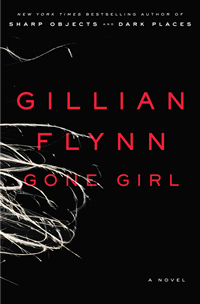 Chapter 16: While writing this book, was it difficult to shift gears from this toxic, fictitious marriage to your own comparatively peaceful, sunny home life?
Chapter 16: While writing this book, was it difficult to shift gears from this toxic, fictitious marriage to your own comparatively peaceful, sunny home life?
Flynn: I try very hard to protect my home life from the dark stuff that circulates in my head as I’m writing. Because it’s impossible to write something as toxic as Gone Girl and not have it invade your mood (if it doesn’t invade your mood, you’re doing something wrong). So I keep very regular work hours, and about ten minutes before the end of my writing day, I do something happy. It may involve a game of Galaga; it may involve listening to Patton Oswalt while eating Cheetos; it may involve watching a dance number from Singin’ in the Rain. I have a little basement office, so the motto in our house is “Leave the Crazy Downstairs.” I have a plaque on my desk to remind me.
Chapter 16: Your website bio notes that Gillian Flynn is, in theory, “working on her next novel. In reality she is possibly playing Ms. Pac-Man in her basement lair.” Joking aside, does seeing Gone Girl perched atop best-seller lists affect your motivation to sit down and start a new project? Are you at all intimidated by your own success?
Flynn: It’s always intimidating to start a novel. No matter what. You’ll always find a reason to be freaked out. (Again, if you’re not freaked out, you’re doing something wrong.) I think the challenge is to not compare any book to a previous book, and write what you have to and want to write. Easier said than done, but a worthy goal.
Chapter 16: The film version of Gone Girl will be produced by Reese Witherspoon’s company: she’s slated to star in it, and you’ll write the screenplay. Have the two of you discussed your visions for the film? Can you give us a hint about how closely it will follow the framework and pace of the novel?
Flynn: I am just now getting started on the screenplay, so I have no specifics yet, to tell you the truth. I know everyone involved is involved because they love the book—not because it’s a bestseller, but because they love the book. Reese got in touch before Gone Girl was even published, and that’s really cool to me. She’s going to blow people away—I can’t wait.
Gillian Flynn will discuss Gone Girl at the twenty-fourth annual Southern Festival of Books, held October 12-14 at Legislative Plaza in Nashville. All events are free and open to the public.

